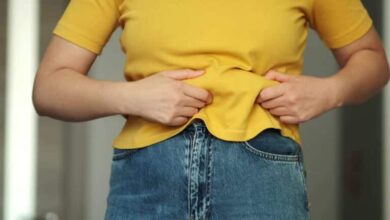How to Lose Belly Fat After 50, Say Experts

Growing into your 50s is yet another beautiful chapter of life. But alas, the struggle to shed weight becomes all too real with age. By making some necessary adjustments to your routine, you can blast that hanging belly fat of yours and get excited about slipping into those form-fitting jeans you almost tossed out. If you’re wondering how to lose belly fat after 50, we spoke with two members of our Medical Expert Board, Brittany Dunn, MS, RDN, CD, a registered dietitian and chef specializing in sports nutrition, and Amy Shapiro, MS, RD, CDN, the founder and director of Real Nutrition, a New York City-based private practice dedicated to healthfully and successfully guiding clients to their optimal nutrition, weight, and overall wellness, who break down exactly how you can melt belly fat and reveal an all-around slimmer you.
Keep reading to learn about these top-recommended tips and tricks from the experts. And when you’re finished, don’t miss out on these 8 Standing Exercises That Strip Away Belly Flab Fast.
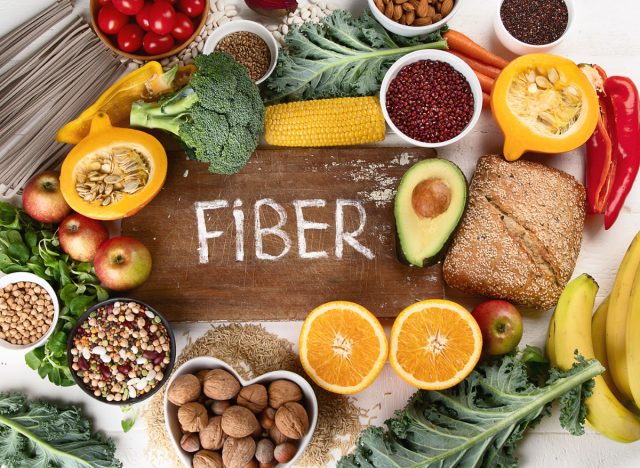
If you’re looking to lose weight and follow an all-around healthy diet, fiber is your new BFF. “Fiber provides a greater sense of fullness when included in a meal,” Dunn tells us. “Because it slows digestion, it makes us feel fuller longer; decreasing the need to eat again at a sooner time. Fiber also plays a role in supporting gut health, bowel regularity, and blood sugar regulation.”
The next time you’re going on a grocery store run, be sure to update your shopping list with tasty and filling fiber-filled snacks for weight loss. Treats like frozen chocolate-covered raspberries, avocado crackers, sliced pear with cheese, and marinated artichoke hearts will ensure you’re enjoying something healthy and packed with fiber.
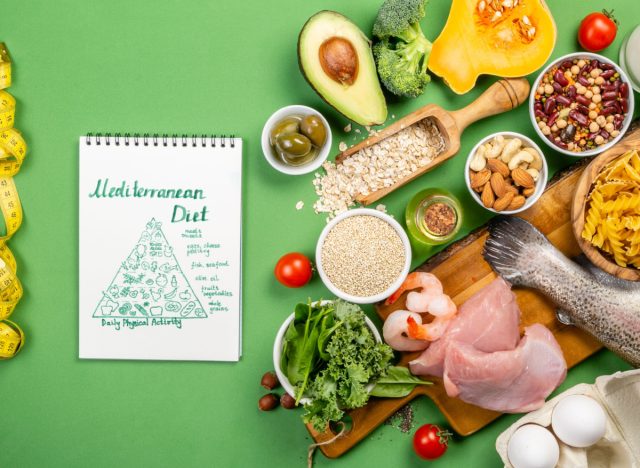
Another diet tip that’ll come in handy the next time you head to the market? Dunn recommends, “Regularly consume foods that are consistent with the DASH or Mediterranean diet. These foods are lower in fat, include more healthy fats (omegas), focus on increased fruit/vegetable and whole grain intake, and have a decreased emphasis on added sugars. These factors are all very helpful when implemented to reduce total body fat.”
If you’re unfamiliar with the Mediterranean diet, this eating regimen emphasizes fruits, veggies, beans, nuts, whole grains, herbs, and spices, along with moderate consumption of poultry, dairy, eggs, and seafood. The DASH diet—aka the Dietary Approaches to Stop Hypertension Diet—is all about supporting your heart health in addition to aiding in weight loss. You can eat fruits like apples, bananas, dates, oranges, and peaches; whole grains like oatmeal, whole-wheat bread, brown rice, and whole-wheat pasta; veggies like broccoli, carrots, spinach, and potatoes; lean proteins like eggs, skinless chicken, fish, and broiled meat; and low-fat dairy.
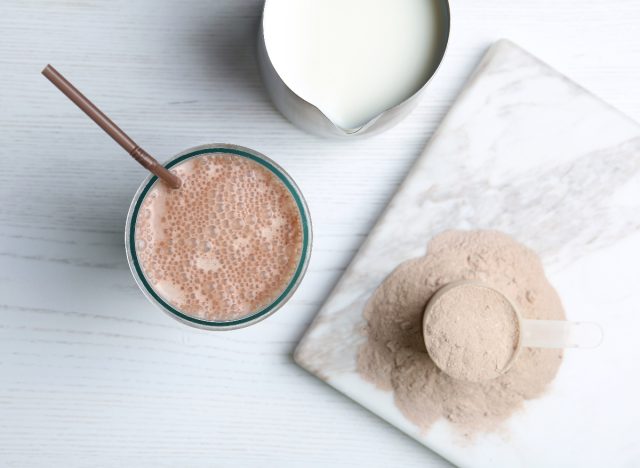
Don’t forget about protein! Like fiber, bumping up your protein intake is a smart idea. “Older adults have an increased need for protein,” Dunn tells us. “An increase in protein intake can aid in weight loss and maintenance. It will also help support recommended strength training as it supports muscle regeneration and recovery.”
Shapiro agrees it’s crucial to meet your protein goals. She explains, “By eating adequate protein, you can help to maintain muscle mass and boost metabolism, increasing caloric burn and ideally leading to weight loss. I recommend aiming for 21 to 30 grams per meal which is equal to about three to six ounces of lean protein.”
From protein shakes to baked goods with protein powder to tasty protein-rich meals, the possibilities are endless. Consider adding protein-packed foods like salmon, lentils, whey protein powder, walnuts, low-fat cottage cheese, peanut butter, egg whites, canned tuna, and chicken into your weekly rotation.
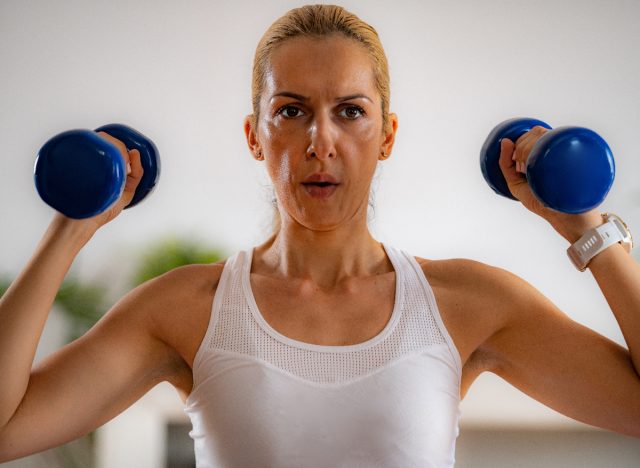
If you’re not already doing resistance training, it’s about time you hopped on the bandwagon. As you age—more specifically, after you turn 30—you can lose anywhere from three to five percent of your lean muscle mass every decade. Performing strength exercises can help lessen this natural decline of muscle that comes with getting older.
“Having more lean muscle also affects your metabolism, as it requires a greater amount of energy for your body to maintain it,” Dunn says. “An increase in resistance training can help you lose weight and maintain or improve your physical function.”
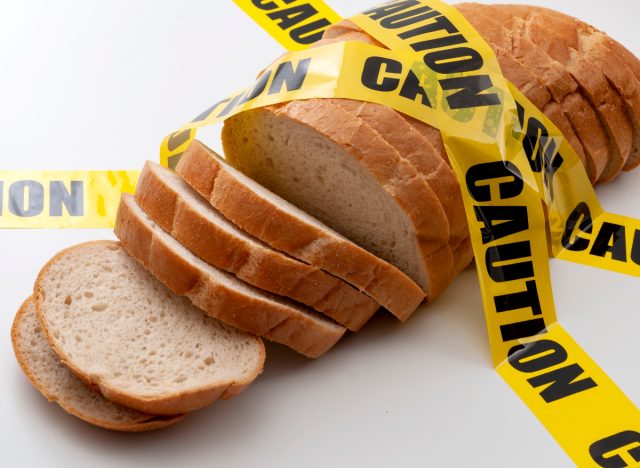
Let’s get one thing straight: Even though carbs are healthy after turning 50, you typically store them easier than you did in your younger years. “We become less insulin sensitive and store excess carbs around our middle,” Shapiro says. “Therefore I recommend clients fill up on healthy carbs like fruits, veggies, and portion-controlled amounts of whole grains (about 1/3 of a cup per serving).”
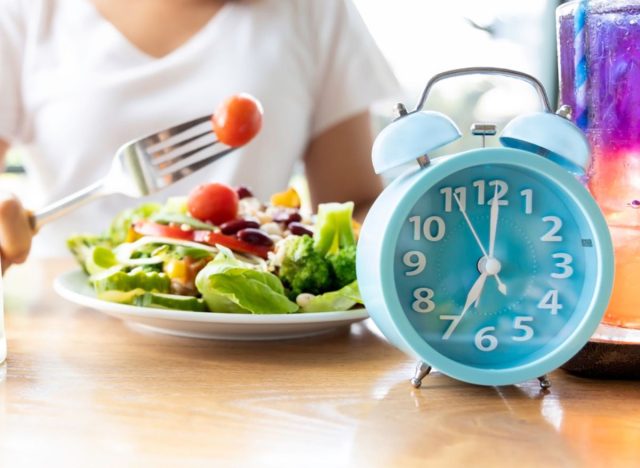
According to a systematic review published in the Original Publication of The College of Family Physicians of Canada, in 27 trials that were examined, intermittent fasting proved to be promising when it came to weight loss, establishing a range between 0.8% to 13% of baseline body weight.
“Research shows that as we age, IF may help to promote weight loss,” Shapiro says. “I recommend women start with 12 to 14 hours depending on where they are in their cycles and aim to begin eating earlier in the day and to stop eating earlier in the day. This will also help to limit food intake in the evening time when we tend to eat “snackier” foods and foods that are high in calories but low in nutrients.”
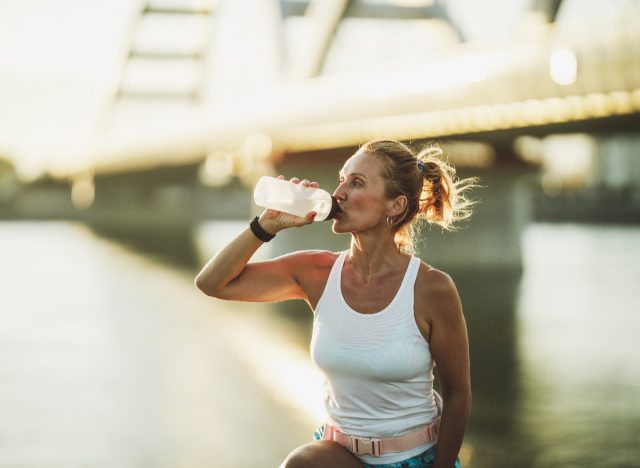
Regularly sipping good old H2O is another crucial expert-approved tip on how to lose belly fat after 50. “As we age we lose our thirst mechanism and tend to walk around dehydrated,” Shapiro explains. “Water intake helps with everything from digestion to energy levels, decreases hunger/cravings, metabolism, detoxification, and weight loss. I recommend aiming for 1/2 your weight in ounces as a baseline every day.” If you tend to forget to fill up your glass, consider investing in a water bottle that reminds you when you need a refill.

